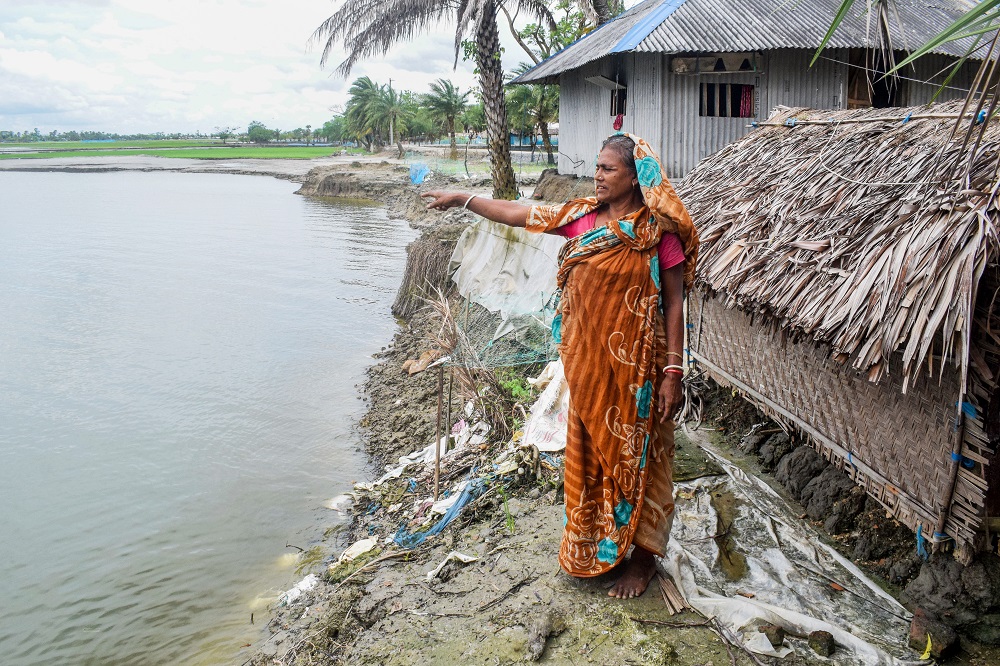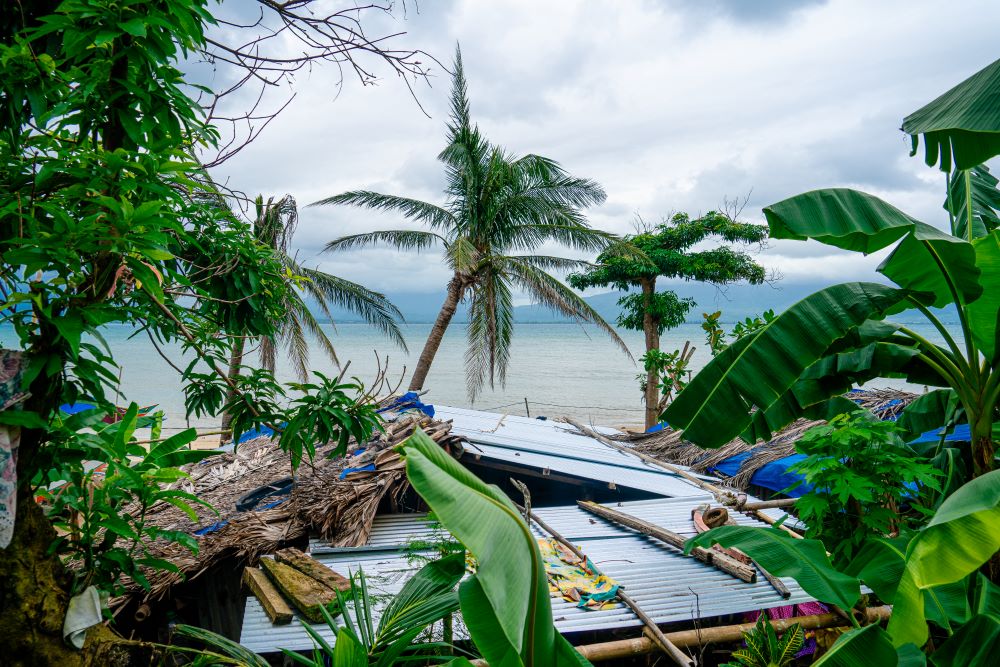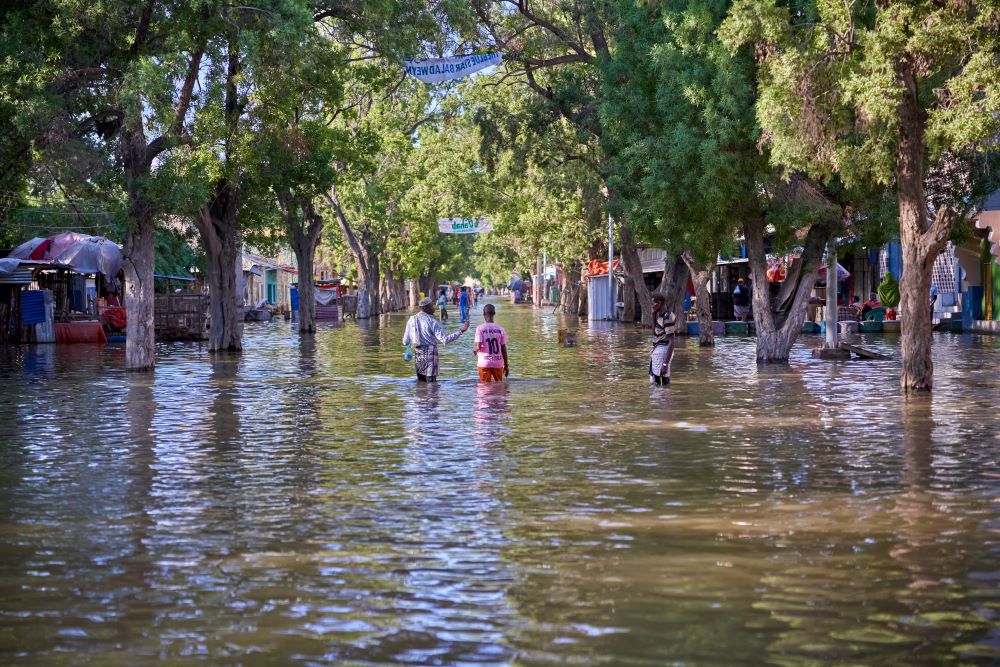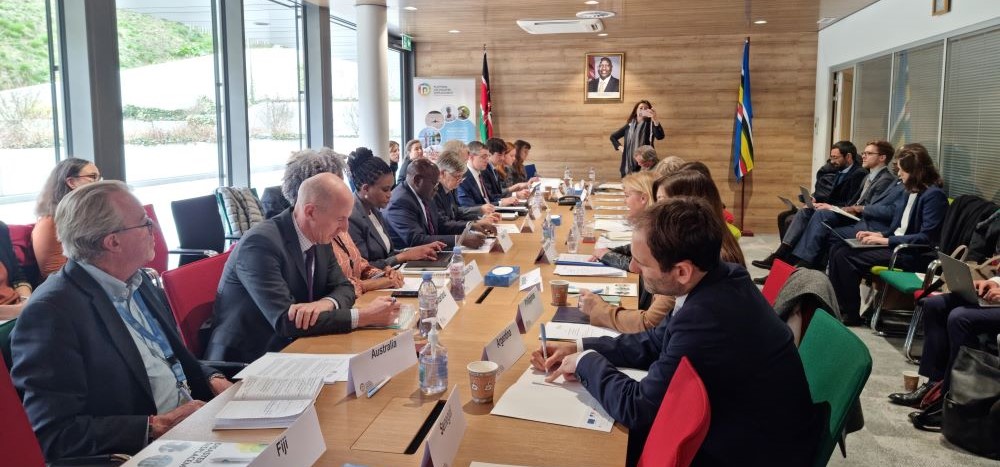In March 2024, the United Nations Special Rapporteur on the human rights of internally displaced…

The Platform on Disaster Displacement Supports Work by Four Countries on Climate Change and Displacement
At the Climate Conference (COP26) in Glasgow, the Norwegian Agency for Development Cooperation (Norad), the Platform on Disaster Displacement (PDD) and the United Nations Office for Project Services (UNOPS) signed an agreement on a joint project to avert, minimize and address displacement related to the adverse effects of climate change. PDD is now announcing that implementation of the project’s activities will start in September in Bangladesh, Fiji, Guatemala and Kenya.
Disaster displacement is a global issue, affecting over 25 million people every year in all regions, according to estimates by the Internal Displacement Monitoring Centre. Climate change, through its impacts on floods, storms, droughts, and slow-onset processes such as sea-level rise and saltwater intrusion threatens lives and livelihoods of hundreds of millions, and will acutely affect how displacement will take place in the coming years and decades.
Increasing climate risks call for decisive responses to avert, mitigate and address the adverse impacts of climate change. Displacement considerations need to be fully accounted for in climate action, disaster risk reduction, humanitarian and recovery work in all countries at risk of, and affected by, climate change.
In order to take action on this topic, PDD, with funding from the Norwegian Agency for Development Cooperation, has embarked on the project titled Action and Support to Avert, Minimize and Address Displacement Related to the Adverse Effects of Climate Change (PAMAD). This three-year effort aims to: 1) develop a better understanding of displacement in the context of climate change as loss and damage, and 2) enhance action and support for measures aimed at averting, minimizing and addressing displacement related to the adverse effects of climate change.
The project, launched at COP26 in Glasgow, has started with an eight-month “inception phase” to detail its geographical and substantive scope. Consultations with Governments in Geneva and in all regions have allowed confirming interest by four countries: Bangladesh, Fiji, Guatemala, and Kenya.
Together with Governments, International partners, Academics and Civil Society Organizations in these four countries, PDD is working to identify priority interventions to support locally across five areas of work, namely: (i) research, (ii) risk assessment, (iii) preparedness for disaster displacement, (iv) planning and (v) access to finance. Implementation of the national components of the project will start in September 2022, following plans of action developed for each country.
The overall project is situated within the implementation of the United Nations Framework Convention on Climate Change (UNFCCC) and the 2015 Paris Agreement but will adopt an integrative approach, operating across related policy areas such as disaster risk reduction, human mobility, humanitarian assistance and protection, human rights, and development. The environmental, social and political diversity of the four implementation countries makes the project a particularly interesting effort for the diverse community engaging on loss and damage – i.e. the impacts that climate change inflicts on people, communities, ecosystems and societies.
Different approaches, partnerships and support will be needed in the different countries. In Bangladesh, for instance, identified priorities include the collection of data on ongoing and potential displacement and the strengthening of preparedness systems for disaster displacement. In Fiji, focus will be put on access to finance and implementation of existing policy instruments on planned relocations. Guatemala, instead, is looking at the generation of evidence and knowledge and the integration of human mobility considerations in urban planning. Support for different activities through the project will translate in a set of lessons and evidence that can feed back into global policy discussions on actions and assistance for vulnerable countries affected by climate change.
PDD will continue to leverage national experiences to contribute to all relevant work under the different streams of climate policy.
About the Platform on Disaster Displacement (PDD): PDD is a group of States leading and working together with partners towards better protection for people displaced across borders in the context of disasters and climate change. Its Secretariat is hosted by UNOPS in Geneva, Switzerland.
For more information or to set up an interview, please contact: In Geneva, Switzerland – Chirine El Labbane, Communication Officer, Platform on Disaster Displacement, chirinee@unops.org |+41 79 542 18 09 | www.disasterdisplacement.org
Header photo © Rafiqul Montu | IFRC
Read the Project Fact Sheet

Read the Project Information Note

PAMAD Project Information Note




